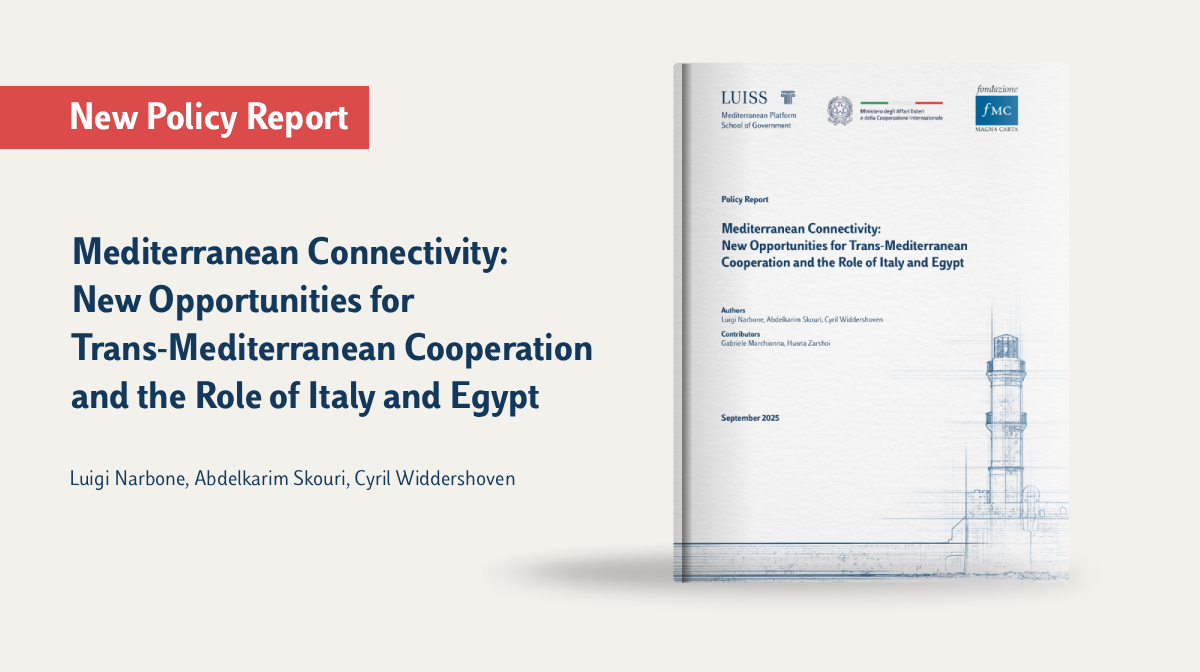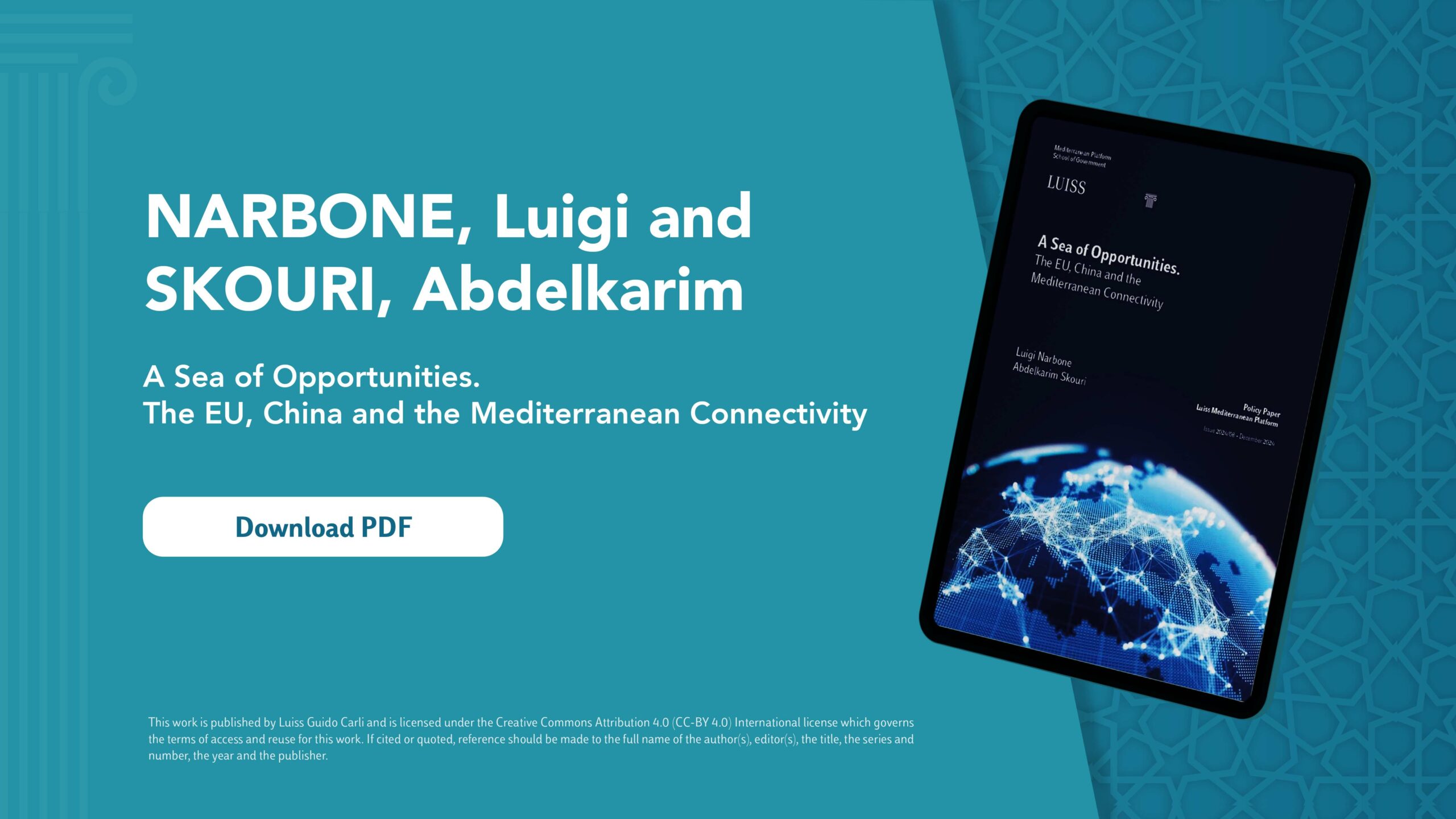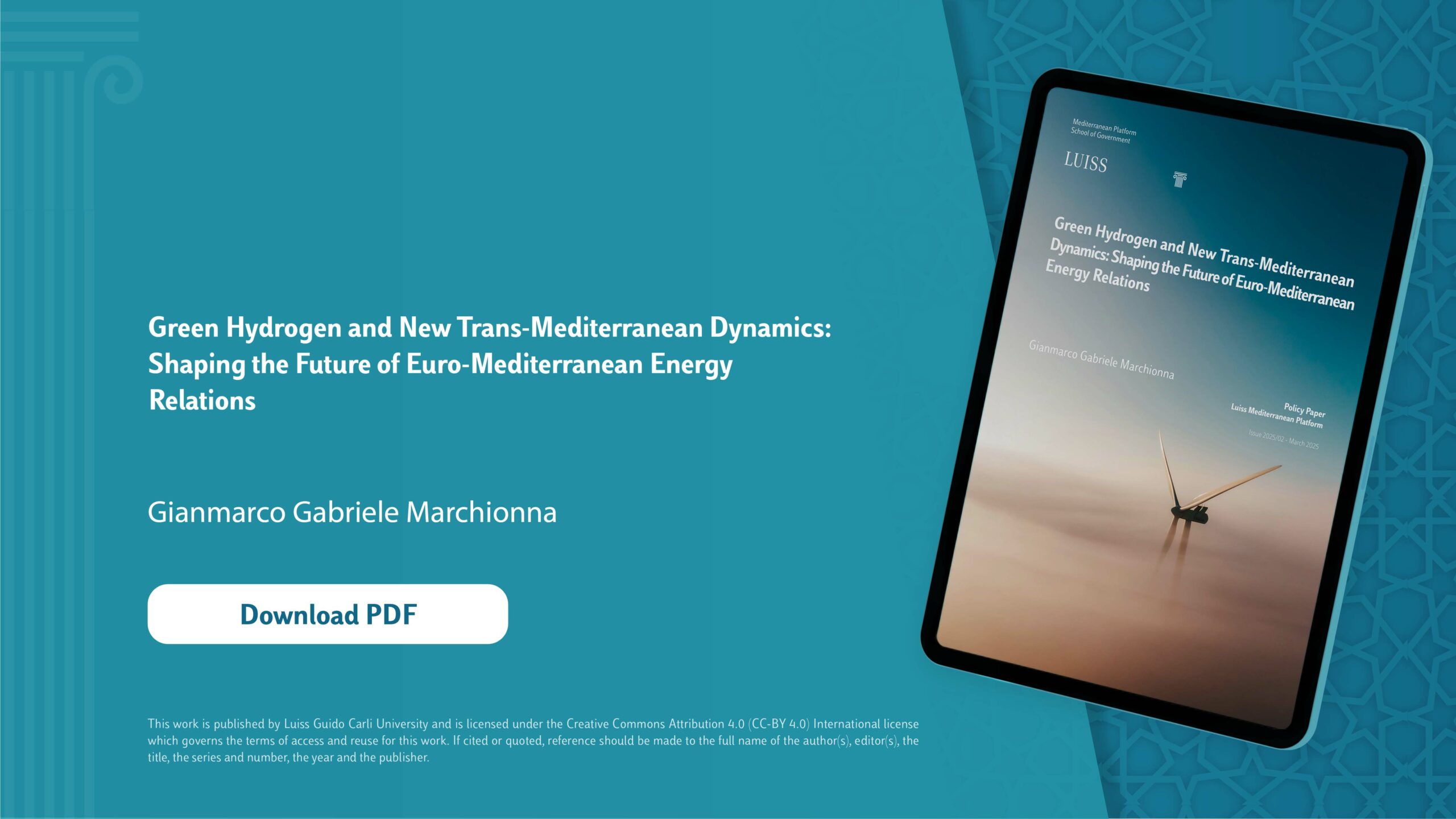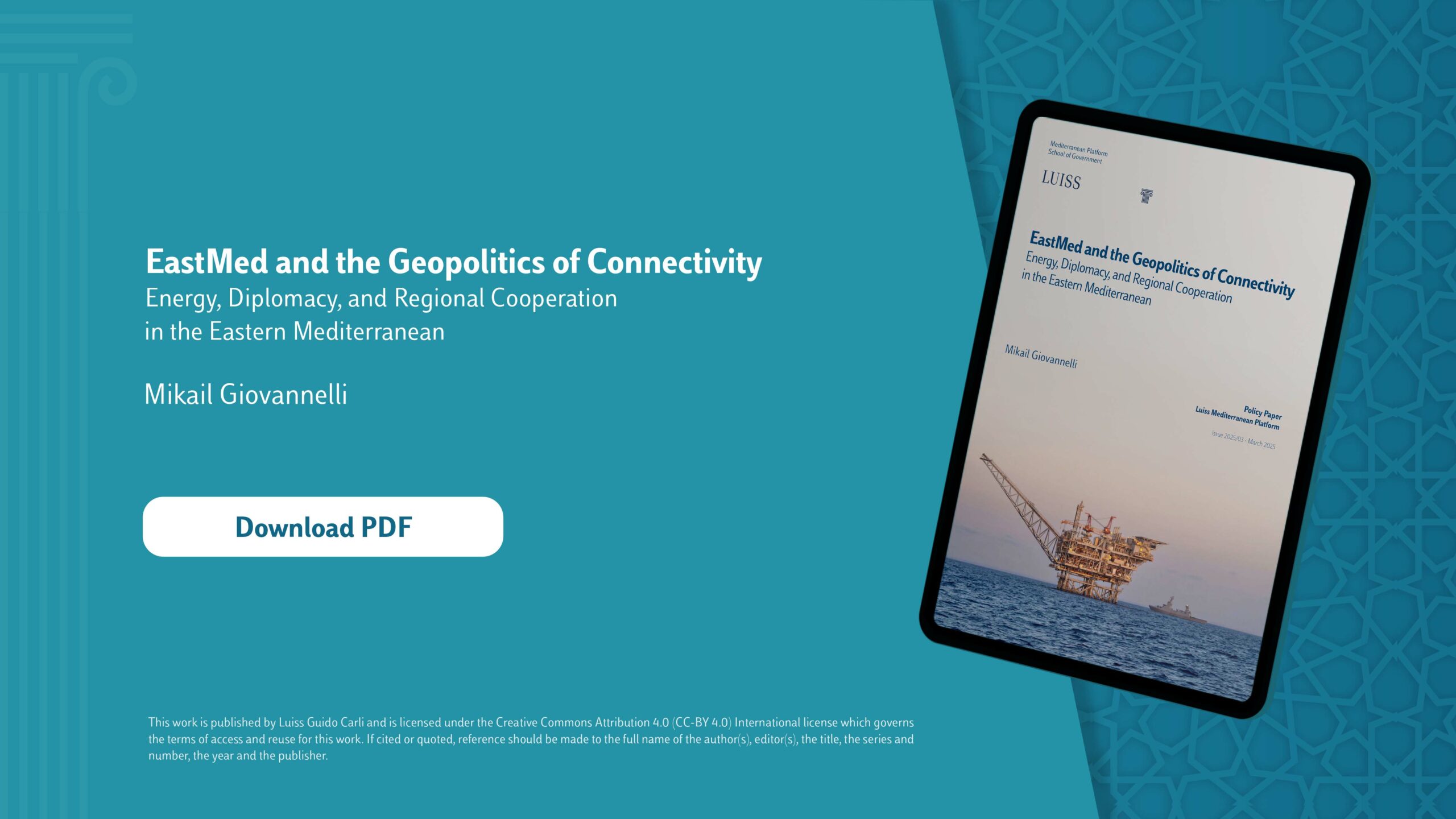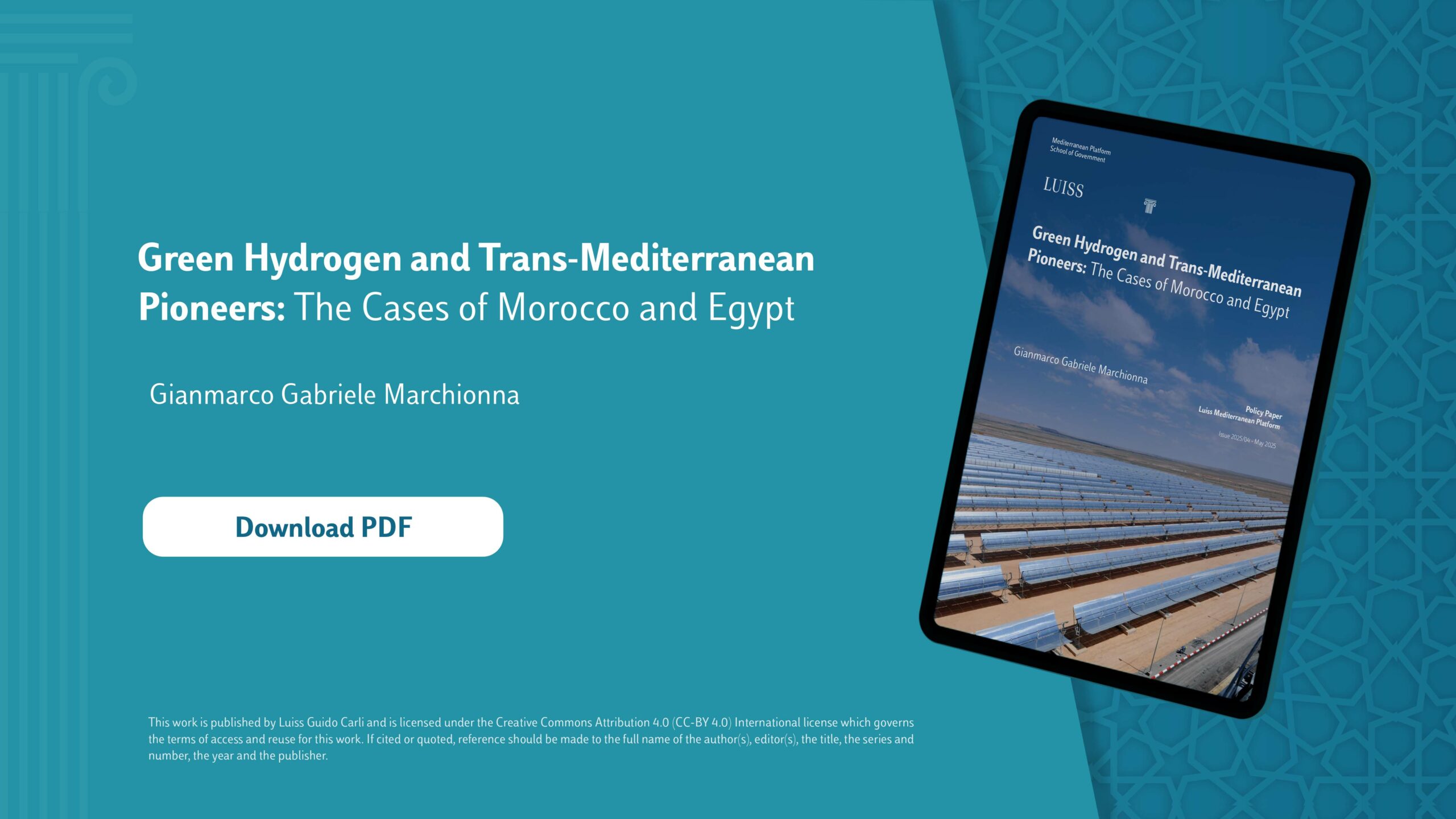Our Publications
Mediterranean Connectivity: New Opportunities for Trans-Mediterranean Cooperation and the Role of Italy and Egypt
“…the region remains one of the least integrated worldwide, hindered by fragmented markets, infrastructure gaps, regulatory divergences, and enduring political mistrust. Advancing Mediterranean integration requires moving beyond past approaches focused narrowly on trade and security, and instead adopting a fresh perspective centred on connectivity—in energy, logistics, and digital sectors.”
A Sea of Opportunities. The EU, China and the Mediterranean Connectivity
The first publication of the Mediterranean Connectivity Platform, “A Sea of Opportunities. The EU, China and the Mediterranean Connectivity,” sets the stage by examining various global connectivity models, offering a comparative lens to identify best practices and lessons learned.
Green Hydrogen and New Trans-Mediterranean Dynamics
Our second publication about green hydrogen as a strategic pillar in Europe’s post-Russian gas era proposes recommendations aimed at strengthening regional coordination, financing frameworks, and strategic planning, positioning the Mediterranean as a global hub for the hydrogen transition.
EastMed and the Geopolitics of Connectivity
Our third publication examines the role of energy diplomacy and connectivity-driven initiatives, assessing both the EastMed pipeline and the Eastern Mediterranean Gas Forum (EMGF) as mechanisms for regional engagement.
Green Hydrogen and Trans-Mediterranean Pioneers: The Cases of Morocco and Egypt
Our fourth publication explores how Morocco and Egypt are positioning themselves as key hydrogen exporters to Europe in the post-Russian gas era. It highlights their divergent strategies, shared challenges, and the urgent need for regional coordination to unlock the Euro-Mediterranean hydrogen potential.
